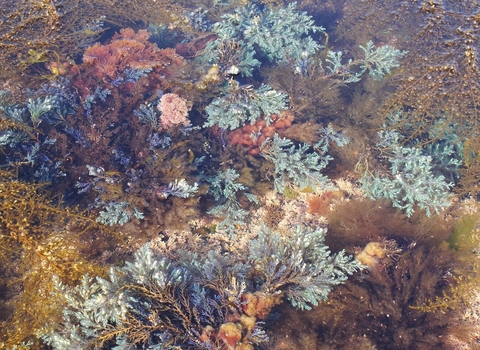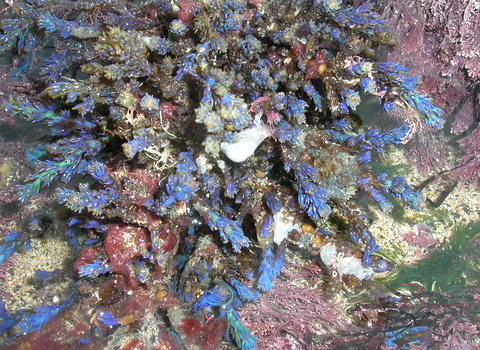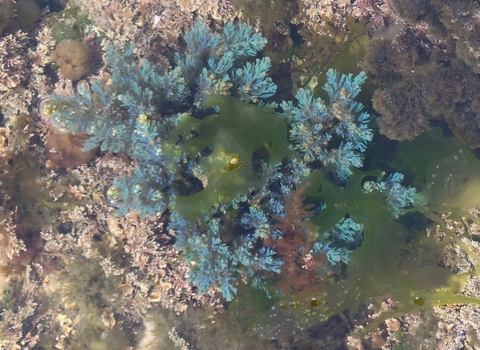Rainbow wrack
A bushy brown seaweed that appears bright blue underwater.
Enw gwyddonol
Cystoseira tamariscifoliaPryd i'w gweld
Spring and summerSpecies information
Ynghylch
A distinctive and colourful seaweed, with a tough main stem from which a profusion of side branches and smaller fronds grow. The stem, also called a stipe, is often covered in sponges and other growth, especially near the base.Because rainbow wrack grows in the intertidal zone, it is exposed to lots of sunlight and the bright colours tend to fade as the summer progresses. The colours are always most vivid in spring, but to enjoy the best effect look amongst the lowest branches, which remain shaded and keep their colour for longer.



